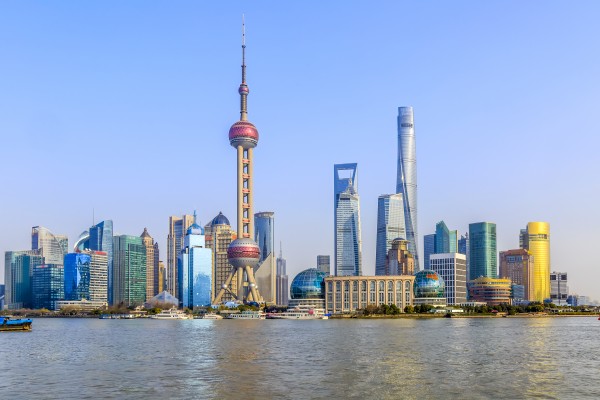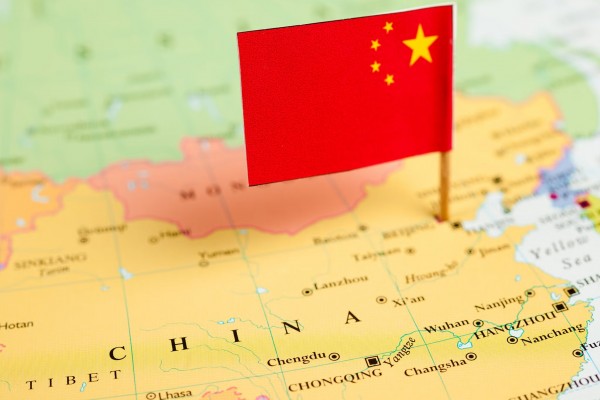Review № 5 of Chinese Antitrust News from the Experts of the BRICS Competition Centre
- Game Companies Committed to Adding Social Value
- SAMR Public Opinion Management Training
- Biggest IPO since the DiDi Incident
- China will increase the competitiveness of national brands
- Chinese counterparts of ChatGPT will face strict regulation
- The Ministry of Commerce welcomes the growth of European investment
- Which of the Big Techs entered the list of NPC delegates
- TikTok fired the remaining employees of the Indian office
- Alibaba sent humanitarian aid to Turkey
- Recommendations of the European Chamber of Commerce for Shanghai
- The United States will create a working group to protect breakthrough technologies
- Reuters: Investors from other countries are losing interest in Chinese government bonds
Game Companies Committed to Adding Social Value
At the China Association of Audiovisual and Digital Publishers conference, its first vice chairman, Zhang Yijun, said that in recent years, the digital economy has become a key force in international competition. How companies that work with digital content bear their social responsibility and immerse themselves in activities for the benefit of society is an integral issue that does not lose its relevance. Leading video game companies - Tencent Holdings, NetEase, Perfect World, miHoYo, Lilith Games and 37Games - of China have unanimously expressed their willingness to promote national culture and uphold social values:
“With the strong support of national policies and regulators, the gaming industry will surely provide broader value in more fields.”
Tencent Interactive Entertainment Group
"NetEase will better shoulder this responsibility and respond to the expectations of society."
NetEase
SAMR Public Opinion Management Training
SAMR conducted a public outcry emergency response training in Wuhan aimed at effectively managing unforeseen reactions from a wide audience and increasing the ability to steer public opinion in the right direction. For the practical part, the topic "Some Internet users doubt the quality and safety of batteries powered by alternative energy sources" was chosen. In this example, local staff were able to practice incident detection, warning, emergency response, and debriefing techniques. According to the organizers, in the era of the mobile Internet, it is necessary to understand the logic of information dissemination at a high level and master the appropriate techniques.
Source: SAMR
Biggest IPO since the DiDi Incident
Hesai Group, a Chinese manufacturer of sensor technologies for self-driving cars, has entered the Nasdaq stock exchange and raised $190 million. This is the largest Chinese IPO in America after regulatory pressure on DiDi in 2021. Then, immediately after the initial public offering of DiDi shares, a cybersecurity review began against the company, and subsequently it had to leave the US exchange. Since the incident, only 10 Chinese companies have successfully listed in New York, raising a combined $376 million, the lowest in 10 years.
The Hesai Group said its decision to go public was bolstered by a reduction in the risk of delisting Chinese companies: most recently, the PCAOB announced full access to the audit documentation required for listing in the US under the Foreign Companies Liability Act.
Sources: WSJ, China Business Law Journal
China will increase the competitiveness of national brands
At the press conference for the release of the Quality Power Plan, a representative of the Development and Reform Committee announced that strengthening the credibility and competitiveness of Chinese brands is an important part of the quality development strategy. Back in 2014, Chinese President Xi Jinping ordered to move from “made in China” to “invented in China”, from Chinese pace to Chinese quality, from Chinese products to Chinese brands. At the press conference, it was noted that it is important to make Chinese brands bearers of traditional culture and socialist values, to fill them with cultural content. In addition, China's own brands need to be strengthened in the international arena, create a positive international image, and raise awareness and credibility abroad.
Source: SAMR
Chinese counterparts of ChatGPT will face strict regulation
Chinese companies actively competing in the development of analogues of ChatGPT are forced to comply with stricter Chinese requirements for online content moderation than in the rest of the world. So, in January, start-up Yuanyu Intelligent launched its own ChatYuan chatbot, but the tool faced a temporary block - its system needs to be configured to block certain keywords. “It’s different in China,” says CEO Yuanyu Intelligent, “we need more layers of filtering and processing in terms of text validation.” However, the company assesses the increased requirements as reasonable and justified: "Filters make our technology not just ordinary AI, but safe AI that works for the benefit of people."
In China, OpenAI's ChatGPT is currently not available. On February 13, the Beijing Municipal Administration of Economics and Informatization released a White Paper on AI, where it stated that it supports leading companies in creating ChatGPT-like models.
The Ministry of Commerce welcomes the growth of European investment
At a symposium with representatives of nine European companies, the Chinese Ministry of Commerce said it welcomes them to step up investment in China and help deepen bilateral relations. The agency will gradually facilitate the access of foreign investment to the market and expand institutional openness. The authorities are ready to support foreign companies in solving problems, create a world-class business environment and stimulate the implementation of significant projects with foreign participation.
The companies noted their continued optimism towards the Chinese market and expressed their intention to increase investment, promoting the development of economic and trade cooperation between Europe and China.
Source: China.org.cn
Which of the Big Techs entered the list of NPC delegates
In 2023, the composition of the legislative and deliberative bodies of China, the National People's Congress (NPC) and the People's Political Consultative Council of China (CPPCC), was updated, where delegates are elected for a period of 5 years. Their sessions are held simultaneously once a year - representatives of various parties, public organizations, industry associations, industries, and so on. make their proposals and initiatives and participate in making important decisions.
The previous composition of the NPC included at least ten representatives of the top management of Internet giants: these are including CEO Baidu, CEO Tencent, CEO Netease, chairman of the board of Xiaomi and Lenovo, etc. Only four remained in the new composition: the founder of Qihoo 360 antivirus Zhou Hongyi , Xiaomi Chairman Lei Jun, iFlytek Chairman Liu Qingfeng and
58.com Classified CEO Michael Yao. According to Southern Metropolis analytics, not a single head of the top 10 largest companies according to the China Internet Association 2022 was included in the new NPC. However, new faces from the Internet industry have appeared - this is, for example, the founder of the Zhihu service (Chinese analogue of Quora) Zhou Yuan.
Source: Weixin
TikTok fired the remaining employees of the Indian office
Amid mounting regulatory pressure, TikTok has fired about 40 remaining employees from its India office. A spokesman for the company announced the decision to close the Indian remote sales support hub, which was established in late 2020 to support the work of global and regional managers. The support covered mainly markets outside of India, such as Dubai and Brazil. But now TikTok is convinced that a restart of the application in India will not happen due to the attitude of local authorities towards Chinese applications. The Indian government blocked TikTok back in 2020 due to national security concerns, although before the blockage, India was TikTok's largest market by downloads (over 18% of the total - compared to 8.7% in the US). At the same time, more than 200 Chinese betting and gambling apps were also blacklisted last week.
Source: SCMP
Alibaba sent humanitarian aid to Turkey
On February 14th, Alibaba announced that it was already sending a second batch of humanitarian aid to Turkey: the first one was delivered to the place on the 12th and 13th. In the immediate aftermath of the tragic earthquake, Alibaba activated its 'help from afar' mechanism with a humanitarian package that included essentials such as winter coats, sleeping bags and children's down jackets. With the support of Alibaba's logistics platforms, the corporation managed to form a humanitarian cargo within 48 hours.
Participation in charity has become an important aspect of China's Internet platforms since the Chinese authorities noted the importance of digital giants increasing their social value.
Source: Weixin
Recommendations of the European Chamber of Commerce for Shanghai
The European Chamber of Commerce in China has published a report with recommendations on how to restore Shanghai's reputation as a reliable international financial and trade center. The report said that the city's credibility was severely damaged during the strict lockdowns of spring 2022 and the subsequent chaotic application of anti-epidemic measures. International business confidence has hit an all-time low, and to restore it, the Chamber is proposing 37 specific recommendations that can help create a secure business environment, including improving the city's ability to attract and retain skilled workers (visa facilitation, etc.) , financial support for SMEs, open dialogue between authorities and industry representatives, predictable environment, removal of barriers to market entry, a level playing field for all players, increased protection of intellectual property to stimulate foreign innovation. “Shanghai has a window of opportunity to restore the trust that has been destroyed over the past three years <…>,” commented the chairman of the Shanghai branch of the Chamber. “This will not happen overnight, but will be based on concrete steps taken by the Shanghai government to create a transparent and predictable business environment.”
Source: European Business in China
The United States will create a working group to protect breakthrough technologies
As Deputy Attorney General Lisa Monaco announced, the Department of Justice will partner with the Department of Commerce to create the Disruptive Technology Strike Force - at the expense of which the States will not allow opposing countries, such as China or Russia, to gain access to to sensitive data and technologies. The group will investigate and punish crimes related to violation of export laws. The prosecutor also added that in addition to said partnership, the Justice Department will tighten scrutiny of both foreign investment in the US and private US investment in foreign companies that may develop sensitive technologies. The focus will also shift from inward investments in physical assets to investments in sensitive data and digital innovations that can create cybersecurity risks. “The ability to weaponize data will only grow over time as AI and algorithms enable the use of large datasets in increasingly sophisticated ways,” said Lisa Monaco.
Source: WSJ
Reuters: Investors from other countries are losing interest in Chinese government bonds
Global investors are cutting back on Chinese government bonds as they prepare to tighten monetary policy in China, Reuters reported. Now that the economy is rapidly reopening after the pandemic, analysts expect the People's Bank of China to suspend its stimulus. Data from the Chinese platform Bond Connect, the main channel for foreigners to invest in Chinese markets, shows that foreign investors sold about $90.63 billion worth of government bonds in 2022. Other markets, such as South Korea, India and Indonesia, are widely believed to be promising more. growth in capital income.
Source: Reuters




